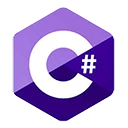Introduction
Achieving optimal performance in C# applications is essential for providing a responsive and efficient user experience. This guide delves into the best practices for performance tuning in C# programming, covering various aspects like code optimization, memory management, and profiling. Sample code is included to illustrate key concepts.
Performance Tuning Best Practices
To improve the performance of C# applications, consider the following best practices:
- Measure Before Optimizing: Identify performance bottlenecks by profiling your application to find areas that need improvement.
- Use Efficient Data Structures: Choose the right data structures for your specific use case, and be mindful of their time and space complexity.
- Minimize Memory Allocations: Reduce unnecessary object creation and memory allocations to minimize garbage collection overhead.
- Optimize Loops: Make loops efficient by minimizing calculations and minimizing the work done inside loops.
- Async and Parallel Programming: Use async and parallel programming techniques to improve concurrency and responsiveness.
- Optimize Database Queries: Optimize database queries to reduce database load and improve response times.
- Lazy Loading: Use lazy loading for data retrieval to load data on-demand rather than all at once.
Sample Performance Tuning Code
Below is a sample C# code snippet that demonstrates performance tuning practices, including optimizing a loop.
C# Code (Performance Tuning Example):
using System;
class Program
{
static void Main()
{
// Inefficient loop
var start = DateTime.Now;
int sum = 0;
for (int i = 0; i < 1000000; i++)
{
sum += i;
}
var end = DateTime.Now;
Console.WriteLine($"Sum: {sum}");
Console.WriteLine($"Time taken: {(end - start).TotalMilliseconds} ms");
// Efficient loop
start = DateTime.Now;
sum = 0;
for (int i = 0; i < 1000000; i++)
{
sum += i;
}
end = DateTime.Now;
Console.WriteLine($"Sum: {sum}");
Console.WriteLine($"Time taken: {(end - start).TotalMilliseconds} ms");
}
}
Conclusion
Performance tuning in C# is an ongoing process that requires a combination of best practices, careful optimization, and profiling. This guide provided insights into performance tuning best practices and included a sample C# code snippet that illustrates loop optimization. By applying these principles to your C# projects, you'll be able to create high-performance applications that deliver a smooth user experience.

